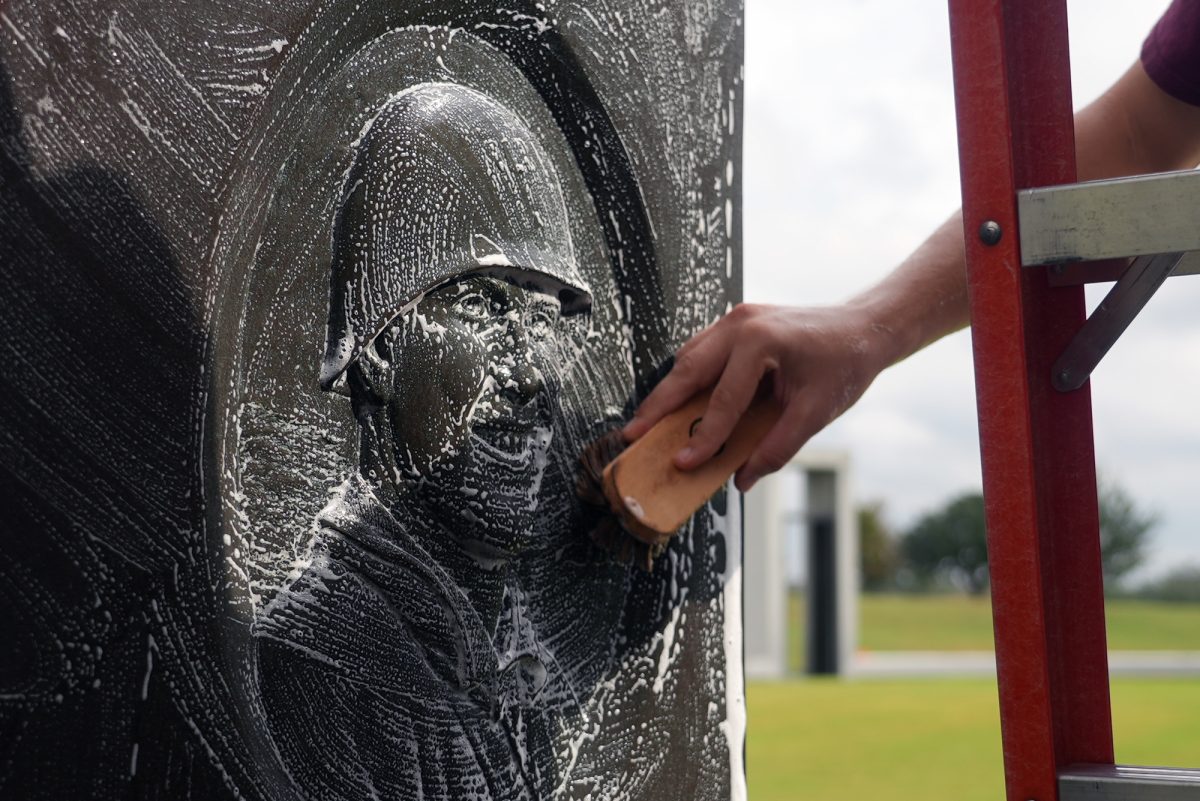With the Valentine’s Day holiday and recent release of the controversial show “You,” Texas A&M student organizations and resources partnered to provide an event focusing on the heavy topic of surviving and identifying stalking.
On Feb. 9, the student organization Sophomores Leading, Impacting, Developing and Educating, or SLIDE, and Sexual Assault Resource Center of Brazos Valley, or SARC, held a panel at the Rudder Forum to inform the Texas A&M community about the signs to look out for and ways to protect oneself from stalking in the real world while also discussing the issues portrayed in the show “You.”
Urban and regional planning sophomore Ximena Lino was one of two student speakers who spoke during the panel.
“I joined SLIDE/SAAM [Sexual Assault Awareness Month] to be able to share my own experiences to make an impact and help educate other people,” Lino said. “I was the only survivor speaker on the panel and it was honestly nerve wracking, but the experience was something that I know will help me grow and spread SLIDE’s mission statement.”
When the SAAM executive asked if anyone wanted to be a speaker on the panel, Lino said she immediately jumped at the opportunity.
“My stalker was someone who I was close with and he constantly harassed me on different social media accounts for about a year and a half,” Lino said. “Being away at college definitely helped ease my fear of him but it still had an impact on my freshman year at A&M.”
Lino said it’s important for students to be aware of what stalking looks like, not just only for their own safety, but for others as well.
“There are many people who aren’t aware of what the exact definition of stalking is,” Lino said. “They may not even be aware that the person harassing them is a stalker, just like how I was in my situation.”
Allied health sophomore Jesse Briseno was in attendance for the panel in order to provide Lino moral support.
“The reason I came out to the seminar was because my dear friend Ximena [Lino] was picked as a participant to share her personal story of her situation relating to the purpose of the panel,” Briseno said. “I wanted to support her and hear her story, as it is always important to be there for people who you cherish in times when they may be vulnerable.”
From this panel, Briseno said he learned the many different policies there are in place here at A&M to support people who end up in a situation regarding stalking and unwanted online connections.
“This panel is beneficial,” Briseno said. “Because you get to hear from experts and workers from every part of campus that are trained and designed to aid you in a situation like this, as well as many other similar harmful situations.”
Mathematics sophomore Marina Oliveira was in attendance for the panel and gave her insight on how the correlation with the television series “You” coincides with the reality of the topic.
“I really like the show ‘You,’” Oliveria said. “I think it’s very interesting how it works, how it’s portrayed and how we are basically in the mind of a stalker.”
Oliveira said it’s not something that she personally experienced or noticed, but the panel really put into perspective that situations like these actually happen to others.
Allied health sophomore Kaitlyn Carrier was in attendance for the panel and happened to be Oliveira’s guest.
“I thought it was really interesting coming from my classes, hearing about what [stalking] could do to somebody to hearing about it here, seeing how you could help somebody in that situation and notice the signs of how it could happen to you,” said Carrier.
In the panel they discussed how the female character would be actively pursued; eventually, she would give in or they would portray the male’s persistent actions as romantic, Carrier said.
Jennifer Smith, assistant vice president and campus Title IX Coordinator, told The Battalion via email that the Title IX office can help students with concerns of stalking or harassment.
“The number of stalking allegations that we receive has grown over the last few years,” Smith said. “I believe this increase can be at least partially [be] attributed to an increased awareness that stalking violates [A&M] rules and an increased awareness that the Title IX Office can provide support, resources and options for resolving a complaint to students who are affected by stalking behavior.”
A&M has a policy that expressly prohibits stalking and assigns sanctions for those found responsible for violating the rule, Smith said.
“The rule has a very low threshold — it only takes two instances of unwelcome communication — including texts, email or social media messages — that put someone in fear for their safety or causes substantial emotional distress to be considered stalking,” Smith said. “Second, anyone can file a complaint about stalking with the Title IX Office.”
Smith said, depending on the facts of the case and the wishes of the person affected by the stalking behavior, Title IX can provide a multitude of options designed to prevent future instances of stalking.









